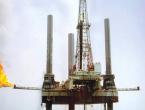EUR/USD
1.16069
-0.041%
Gold
5166.90
1.543%
Oil
74.365
0.109%
USD/JPY
157.438
-0.158%
GBP/USD
1.33352
-0.157%
GBP/JPY
209.944
-0.301%
March 4th - Iranian sources reported on March 3rd that the election for Irans Supreme Leader may be postponed until next week. The sources said that the highest level of security measures have been implemented to ensure the smooth conduct of the election by the Council of Experts. The election may be held in person after the funeral of the late Supreme Leader Khamenei.On March 4, Cai Jianchun, a member of the National Committee of the Chinese Peoples Political Consultative Conference (CPPCC) and general manager of the Shanghai Stock Exchange, said in an interview at the economic sectors residence that 70% of Shanghai-listed companies have released action plans to improve quality and efficiency, and the effects of improving quality and efficiency and focusing on returns are continuously improving.Fitch: If the conflict in Iran continues, energy exporters in the Asia-Pacific region will benefit, while processors will be impacted.A cabinet representative of South Koreas ruling party stated that a bill related to US investment will be passed on March 12.On March 4th, the National Railway Administration issued a notice stating that it has drafted the "Administrative Measures for Railway Engineering Quality Testing (Draft for Public Comment)" and is now soliciting public opinions. The draft proposes establishing a licensing system for testing institutions. First, it clarifies the definition of railway engineering quality testing and emphasizes the implementation of qualification management for railway engineering quality testing institutions. Second, it stipulates the qualification categories for railway engineering quality testing institutions, dividing them into two main categories: comprehensive qualifications and specialized qualifications. Third, it clarifies the application conditions, application materials, and application procedures for testing institution qualifications. Fourth, it proposes requirements regarding qualification review methods, review procedures, certificate validity periods, qualification renewal, qualification changes, institutional restructuring, and cancellation.











